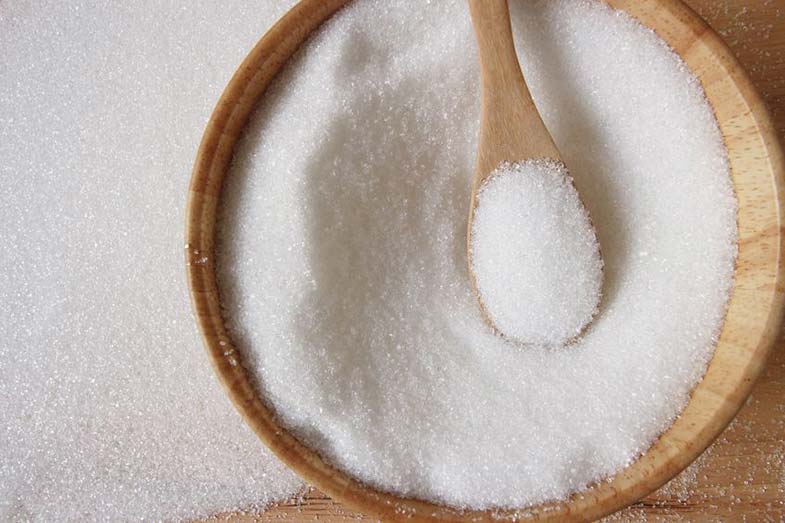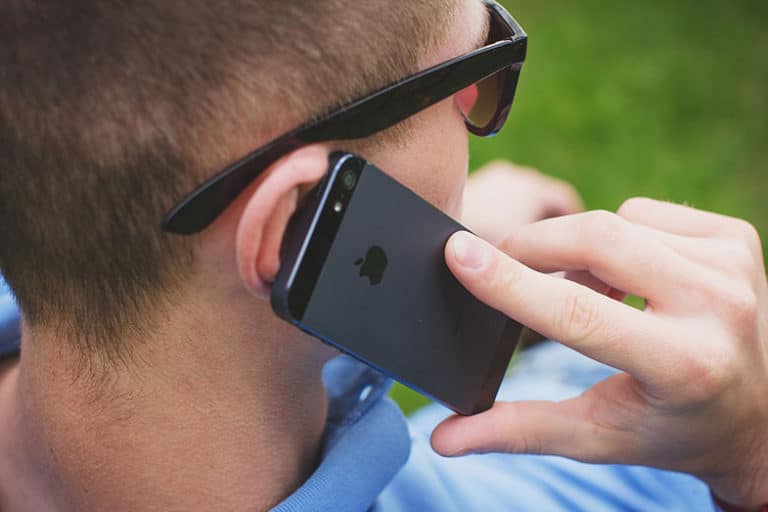Why Do I Get Sleepy After Eating Ice Cream?
Disclosure: We may get commissions for purchases made through links in this post.
I scream, you scream, we all scream for ice cream! Well…not always. Ice cream is that delicious treat we all crave. The smooth texture, exotic flavors, and cold temperature are enough to keep you coming back for more. Everything about ice cream seems great but there’s one question you’ve always wondered…
Why do I get sleepy after eating ice cream? When you eat ice cream, your blood sugar rises, causing insulin to be produced and regulate the increased level. Following this process, serotonin releases in the brain which makes you feel sleepy, or crash, as blood sugar and insulin levels adjust.
Understanding the effects of ice cream can help you avoid going overboard and having too much. Too much ice cream can lead to a sudden crash, and other possible complications if it is something your body doesn’t agree with.
In this article, we’ll take a look at one of the main components of ice cream: sugar, and explain the effects it has on our bodies and why it can make us feel sleepy.

Also, take a look at these three popular Amazon products that are excellent for getting a good night’s sleep.
| Classic Brands Cool Gel 2.0 Memory Foam Mattress (view on Amazon) |
Fitbit Inspire Heart Rate and Fitness Tracker (view on Amazon) |
Linenspa Memory Foam and Innerspring Hybrid Mattress (view on Amazon) |
| Classic Brands’ gel memory foam mattress provides excellent support and a sleep surface that will keep you cool throughout the night, or a mid-day nap. | Track your sleep and heart rate with the Fitbit Inspire. If you’re wondering if some foods are making you crash, get more insight about your sleep with this tracker. | Improve your sleep so that you have more energy each day. The Linenspa Hybrid Mattress provides excellent comfort and support, with a medium-firm feel. |
Ice Cream and Glucose
Ice cream contains around 20-30 grams of refined sugar per 1 cup, which varies between flavors and brands. When eaten, especially a lot, you experience what’s known as a “sugar high”. This is only temporary as blood glucose (blood sugar) levels rise. The body as a result, detects this rise in glucose and releases insulin into the bloodstream, instructing other parts of the body such as the liver and muscles to convert the extra glucose into energy. When an excess of glucose leaves the bloodstream, you are indeed, low on sugar, therefore glucose and insulin levels need some time to adjust.
Ice cream is one of those foods we crave and enjoy eating lots of. But how much is acceptable? If referring to store-bought, processed ice cream, then any amount is unhealthy. That being said, having it once in a while won’t be serious but the fact remains that it is unhealthy and should be eaten in moderation. Next time your are at the grocery store, check the nutrition facts on the foods you buy. It may come as a surprise that a lot of them contain high amounts of sugar.
Sugar

We all know sugar to be that sweet, little addition to the foods and desserts we love. Well there’s a lot more to it.
Sugar is a simple carbohydrate the body uses for energy. Different types of sugars, either natural or refined, behave differently as they are processed. Many foods contain this sweet substance making it difficult to avoid. It’s important to understand that too much of it can leave a negative effect on the body and mind. Being aware of the foods you eat and the amount of sugar they contain can help you avoid post meal hazes and other potential health issues.
A type of natural sugar is glucose which can be found in fruits and vegetables and when eaten, either converts to energy or is stored for later. Another natural sugar is fructose, found in fruits, honey, and cane sugar, and is a basic component in what we commonly know as table sugar. Natural sugars found in fruits and vegetables offer a wealth of health benefits but refined sugars, unfortunately, do not.
Table sugar is the type of sugar we are most familiar with – the white, crystallized version added to cookies, cakes, and other sweets. It is usually processed from sugar beets or sugar cane, and then refined to be used as a sweetener. Along with ice cream, here are some other foods that contain refined sugars:
- Sports Drinks
- Fruit juice
- Breakfast cereal
- Processed foods
- Granola
- Yogurt
- Ketchup
- Tomato sauce
Refined sugars can be found in many different foods, even ones that are advertised to you as healthy. They may be delicious, but they can also cause many problems such as weight gain, stress, mood swings, fatigue, and diabetes. Refined sugar can also lead to heart disease through an increase in blood pressure. One of the most common downsides of sugar is tooth decay. The mouth is full of bacteria, both good and bad. Some bacteria will create acids from the sugar you eat to break down tooth enamel, which is the outer layer of teeth. These acids can also create cavities.
Food and Sleep

Feeling sleepy after eating is normal, however, if it’s an ongoing occurrence, there may be an underlying health issue. Processed and high sugary foods raise blood sugar levels, followed by a rapid drop, which causes sleepiness. Ice cream for example, is a refined food and may give you a burst of energy but will lead to a drop in insulin levels.
All food is digested in a similar way but may affect the body differently when processed. High protein foods, for example, trigger serotonin in the brain, a chemical that regulates sleep. Fruits such as cherries contain melatonin, a hormone that helps control your sleep cycle. Sugar, as discussed in this article, causes blood glucose levels to rise and drop. These can all be responsible for that urge to sleep after eating.
Overeating may also make you sleepy. After a meal, blood flow is focused more towards the digestive system and less to the brain. When the brain doesn’t get enough blood flow, it creates a feeling of lightheadedness or fatigue. During this drowsy feeling, we may get the urge to dive into a big bowl of ice cream for dessert. At this point, blood levels are all over the place, working hard to get back to a stable level. Overeating may also lead to digestion problems such as indigestion and bloating which can also contribute to why a feeling of sleepiness occurs.
Carbohydrates are a great source of energy for the body, especially before exercise. If too little or too much is eaten, the body will lack energy. It is recommended that carbs should make up around half of your daily calorie intake to avoid drowsiness. Everyone is different when it comes to body type, weight, health, and lifestyle. Someone who does a lot of cardio and has a higher metabolism may benefit more on a high carb diet than someone who doesn’t exercise regularly or has a lower metabolism. It’s important to listen to your body and make adjustments to the amount of carbs you eat. If you are following your daily carb needs and your diet is in check, but still feel sleepy after eating, you may need to see a doctor to find out if there is another issue such as diabetes or hypoglycemia.
Diabetes
Diabetes is when the body cannot produce insulin to control blood glucose levels. When blood sugar levels get too high without being regulated, this can lead to serious problems including nerve damage and organ failure. There may be a feeling of numbness in the hands or blurred vision. The kidneys try to remove extra sugar through urine which makes the individual tired or sleepy as a result of energy being lost. Fatigue is a common symptom with diabetes. When blood sugar is high, it begins to move slower. This prevents cells from getting enough oxygen, thus causing a tired, sleepy state. It is important to understand the complications associated with diabetes to better help control blood sugar levels.
Signs of diabetes include:
- Weight loss
- Fatigue
- Frequent urination
- Thirst
- Dry mouth
- Blurred vision
Hypoglycemia and Hyperglycemia
Hypoglycemia is a health condition where there is not enough sugar in the blood. Blood sugar levels will vary throughout the day within a certain range, which is normal. For many though, if it gets too low (less than 70 mg/DL), the body cannot function properly and causes fatigue. There simply isn’t enough energy for the cells to function optimally. Hypoglycemia can occur whether you have diabetes or not. For those with diabetes, hypoglycemia is a result of too much insulin production. Other circumstances include over exercise, not eating enough carbohydrates, and being sick.
Hyperglycemia relates to high blood sugar in those with diabetes. It occurs when the body cannot produce enough insulin to regulate the high amount of blood sugar or when the body cannot use insulin properly. Hyperglycemia should be treated immediately as it can lead to serious problems. Always check for symptoms such as frequent urination, thirst, and fatigue.
Dairy and Sleep

Ice cream is a dairy product, which lends to the sleepy factor. If your childhood nights ended with a mug of warm milk before bed, there is a scientific reason for that. It is not just a comfort drink but affects overall health, too. Aside from fortifying your bones with calcium, milk can send you to sleep via tryptophan.
Tryptophan, Serotonin, Melatonin
Tryptophan is an amino acid that induces proteins and other brain chemicals. It is essential for a well-functioning body. It has several contributions and responsibilities in the body. Most notably, it helps produce serotonin which is a neurotransmitter. While serotonin is often associated with improving mood and behavior, it also has a hand in creating melatonin, a hormone that functions as a neurotransmitter. Melatonin, in turn, is responsible for the sleep and wakefulness cycle of the human body.
So through the journey from tryptophan, to serotonin, to melatonin, milk is known to have this effect when it comes to sleep. Tryptophan supplements can be used as sleeping aids and mood regulators. It can induce a deep, restful sleep, which could explain that immediate effect right after eating a scoop of ice cream.
High Carbs and Insulin
Generally, milk or ice cream alone does not have enough tryptophan to knock you out. However, ice cream is usually eaten as a dessert at the end of a meal. If you had a meal with lots of carbs, you are able to release insulin, which clears other amino acids and helps tryptophan on its way to the brain. This could be an explanation for the phenomenon.
Protein-rich foods are known to be good sources of tryptophan – the typical daily diet has about 1 gram of it included. Other foods that have significant amounts of tryptophan include poultry, eggs, and seafood like shrimp and crab.
Another effect of milk and ice cream is the fact that it is hard to digest. If you know any lactose-intolerant people, their bodies struggle to break down lactose. Even if you are not lactose intolerant, this process is complex enough to make the body tired.
Most ice creams are made of milk, creams, and sweeteners. If you are afraid to doze off just because of dessert, you can go for other options – vegan ice creams or gelatos that have less fat and sugars – that will not have the sleepiness effect attached to it!
Lactose Intolerance
As discussed on dairy and sleep, the effort the body puts in into digesting lactose can create this fatigued and sleepy effect. While you may have observed that your body does not reject lactose, and you are able to indulge in dairy products, you should know that there are levels to lactose intolerance. You may have a slight intolerance to lactose without noticing it, only feeling minor effects but not acknowledging your body’s limitations. You are possibly subjecting your body to increased stress.
On the other hand, dairy can also adversely affect sleep hours and quality. Lactose intolerance is caused by enzyme deficiency. The intestinal enzyme lactase is responsible for breaking down lactose to be properly absorbed by the body. Without lactase, you are left in a terrible state of bloating and gassiness, adversely affecting your sleep. You will probably spend time trying to reduce bloat and go to bed peacefully. Imagine being sleepy and in pain at the same time.






